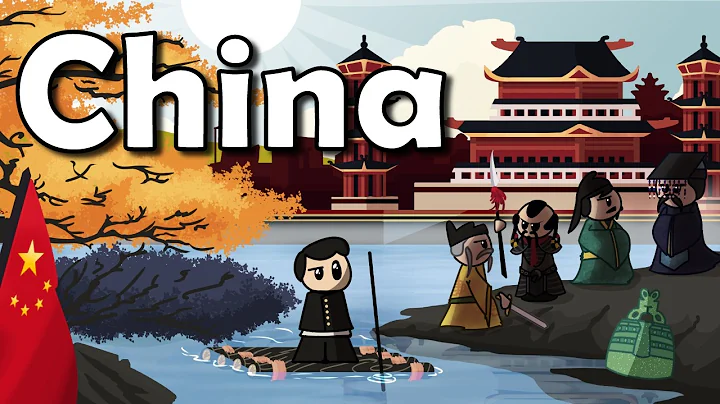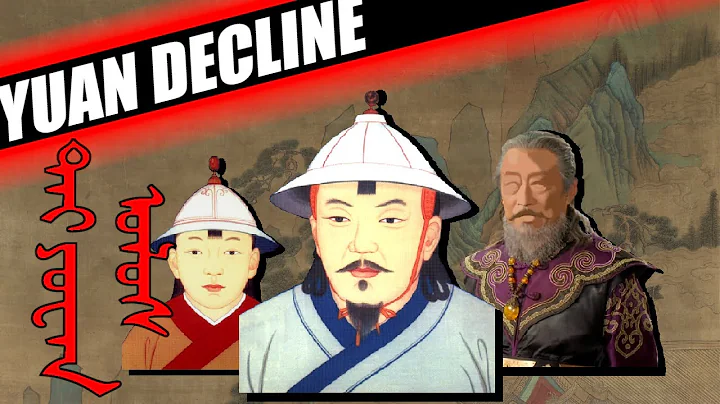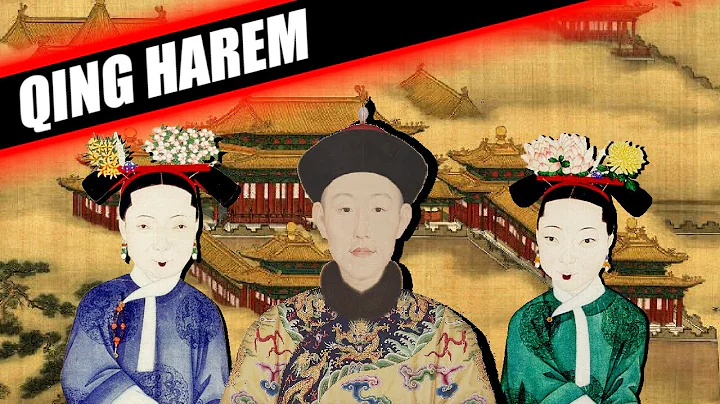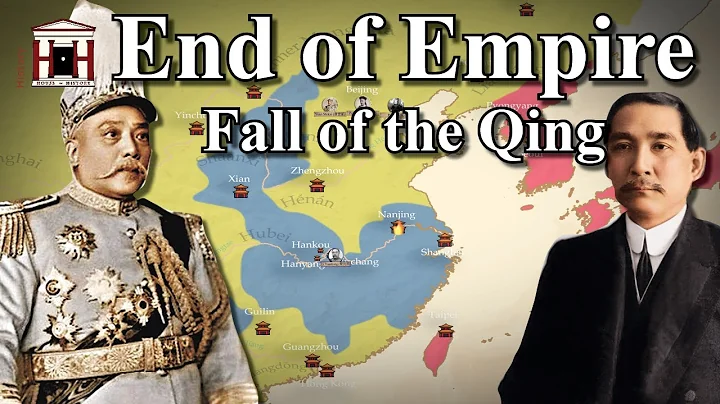In the long history of China's feudal society, palace coups emerged one after another, either from civil servants and military generals, or from within the royal family. They became prominent issues plaguing the ruling class and an important factor affecting the development of the country and the nation.
Now, let us select from these countless palace coups the ten that had a greater impact on the subsequent historical process.
1, Sand Dune Change
, also known as "Dune Conspiracy", occurred when Qin Shihuang passed away. After the death of Qin Shihuang, Zhao Gao and Li Si were greedy for power and colluded with others. They tampered with Qin Shihuang's edict and granted death and resurrection, and established Hu Hai as the prince. After that, Hu Hai successfully ascended to the throne, who later became the second emperor of Qin. Li Si still served as prime minister, and Zhao Gao was appointed as Lang Zhongling. After Hu Hai ascended the throne, bloody political purges followed one after another. The atmosphere of terror enveloped the entire Qin Empire, and anti-Qin waves also surged outside the city of Xianyang.
2, Zhou Bo saved the Han
occurred in the Western Han period. After Liu Bang's death, the Lu family took exclusive power. Lu Lu served as the general of the Han Dynasty as King Zhao, and Lu Chan served as the prime minister of the Han Dynasty as King Lu. They controlled the power of the Han Dynasty and wanted to harm the Liu family. Zhou Bo conspired with Chen Ping and others to seize Lu Lu's military power, and in one fell swoop planned to destroy the Lu family kings and support Liu Bang's descendant king Liu Heng as Emperor Wen of the Han Dynasty. Emperor Wen of the Han Dynasty later started the famous " Wenjing Zhizhi " prosperity.

3. The Disaster of Witchcraft
The Disaster of Witchcraft was a major political event that occurred in the late period of Emperor Wu of the Han Dynasty. In the second year of Zhenghe (91 BC), Gongsun Jingsheng, the son of Gongsun He, the Prime Minister of the Han Dynasty, was accused of using witchcraft to curse Emperor Wu. Jiang Chong, the favored minister of Emperor Wu, was ordered to investigate the witchcraft case. He took the opportunity to go on a rampage. Framed and framed, tens of thousands of people died as a result.
Jiang Chong was at odds with the prince Liu Ju , so he framed the prince with four people including Case Daohou Han Shuo and eunuch Su Wen . The prince was frightened and raised an army to kill Jiang Chong. Later, Emperor Wu suppressed and defeated the army. The queen Wei Zifu and the prince Liu Zhi committed suicide one after another. Hundreds of thousands of people were implicated in this incident, which resulted in the killing of a large number of high-ranking political figures, and the country was shaken. , the Western Han Dynasty turned from prosperity to decline.
4, Xuanwu Gate Change
The Xuanwu Gate Change was a famous palace coup in history. It happened on the fourth day of the sixth lunar month (July 2, 626 AD), the emperor of the Tang Dynasty. Li Yuan, the emperor of the Tang Dynasty, The second son of King Qin Li Shimin launched a coup near Xuanwu Gate in the capital Chang'an City.
After Li Yuan became emperor, he established Li Jiancheng as the prince and Li Shimin as the king of Qin. Li Shimin had great military exploits and was full of prestige. Li Jiancheng was afraid, so he teamed up with his fourth brother Li Yuanji to exclude him. In order to protect themselves, the group of heroes headed by Li Shimin eventually mutinied at Xuanwu Gate. Li Shimin personally killed the prince Li Jiancheng. Afterwards, Li Yuan made Li Shimin the prince. Two months later, he abdicated the throne and became Emperor Taizong of the Tang Dynasty. , the reign name was Zhenguan. , started the 23-year "Reign of Zhenguan".

5, Shenlong coup
Shenlong coup, also known as Shenlong revolution and Five Kings coup, was the first year of Shenlong (February 20, 705). Prince Li Xian , prime minister Zhang Cambodia, Cui Xuanwei , etc. The ministers launched a mutiny in Ziwei City, the capital of Luoyang, forcing the empress Wu Zetian to abdicate and restore the Tang Dynasty . The next day, Wu Zetian appointed Prince Li Xian to supervise the country. On the third day, give in. On the fourth day, Li Xian was officially restored to power. On the fourth day of February (March 3), the country was restored to the Tang Dynasty, and the Wu Zhou court came to an end. Because there were factors that changed the dynasty, it was called a revolution.
6, Tanglong coup
The Tanglong coup was in June of the first year of Tang Long Gengzi (July 21, 710). It was led by the then Prime Minister Li Dan Si San Zi Lin Zhen Wang Li Longji and Princess Taiping. A palace coup co-initiated in Chang'an City, the imperial capital. Li Longji ended with the imperial army killing Queen Wei and Princess Anle, and completely wiping out the Wei Group. The consequences of this coup were that Li Chongmao , who had been in power for less than a month, abdicated, Li Dan was restored to Tang Ruizong, Li Longji was established as the crown prince, and Princess Taiping became more powerful.
7, The Manna Incident
Sima Zhao's regicide, also known as the Manna Incident, was a political event that occurred in Luoyang, the capital of Wei, in May of the fifth year of Cao Wei Ganlu (June 260) during the Three Kingdoms period. It ended with Sima Zhao It ended by deposing and killing Cao Mao and retaining power. Sima Zhao's regicide marked the complete failure of the Cao Group's efforts to restore imperial power since Cao Fang, which further consolidated the political power of the Sima Group, but also left a legacy for the Sima Group. cast a political shadow and delayed the historical process of the Wei, Jin and Zen dynasties to a certain extent.

8, Renyin Palace Incident
Renyin Palace Incident, also known as palace maid regicide, occurred in the Jiajing period of the Ming Dynasty. Since it happened in the Renyin year of Jiajing, it was called the Renyin Palace Incident. Initiated by the palace maid Yang Jinying , a series of more than ten maids including Yang Yuxiang and Xing Cuilian attempted to kill Emperor Jiajing while Emperor Jiajing was sleeping. However, due to the hasty plan and clumsy action, it ultimately failed. The Renyin Palace Incident was caused by Emperor Jiajing's tyrannical and violent behavior, which had a great impact on the Jiajing government. The Renyin Palace Incident was a turning point in the Jiajing government's transition from prosperity to decline.
Emperor Jiajing was a superstitious alchemist and advocated Taoism . He not only regarded Taoism as a spiritual pillar, but also as a basis for governing the country. In order to seek immortality, they worked hard to practice the elixir of immortality. A large number of 13/14-year-old palace ladies were recruited to collect their virgin menstrual blood and refine the elixir. In order to keep the palace ladies clean, they were not allowed to eat during menstruation and could only eat mulberry leaves. , drink some dew. Emperor Jiajing was suspicious, violent and moody, and whipping his maids was a common occurrence. The palace ladies finally couldn't bear it anymore and launched the "Renyin Palace Rebellion" in the 21st year of Jiajing (1542).
9, Seizing the Gate Change
Seizing the Gate Change is also known as the "Nangong Restoration", which occurred during the Ming Dynasty Emperor Zhu Qiyu Jingtai period. Because Zhu Qiyu was seriously ill, generals Shi Heng , politicians Xu Youzhen , eunuch Cao Jixiang and other speculators supported the coup in the eighth year of Jingtai to restore Ming Yingzong Zhu Qizhen, who was imprisoned by Zhu Qiyu in Nangong. After the restoration of Zhu Qizhen, he executed the important ministers Yu Qian and rewarded Shi Heng and others. Intentionally or unintentionally, he ordered the ministers to take advantage of their merits and take revenge, which aggravated the governance crisis of the Ming Dynasty. (Zhu Qizhen was captured by Wala Hu people during the Shuimubao Incident. His younger brother Zhu Qiyu was elected emperor by the ministers and became the Ming Dynasty clan.)
10, Xinyou Coup
The Xinyou Coup was in 1861 (Xianfeng Eleven years) After Emperor Xianfeng died of illness, Empress Dowager Cixi and Prince Gong Yixin launched a palace coup. This coup overthrew the influence of the eight ministers Gu Ming. After the Xinyou coup, Emperor Tongzhi had two empresses, Empress Dowager Cixi and Ci'an, listening to the affairs behind the curtain, and the political king Yixin was in charge of the affairs outside the emperor, thus starting the "Tongzhi New Deal". In fact, Empress Dowager Cixi held the supreme power of the government for forty-seven years.






















